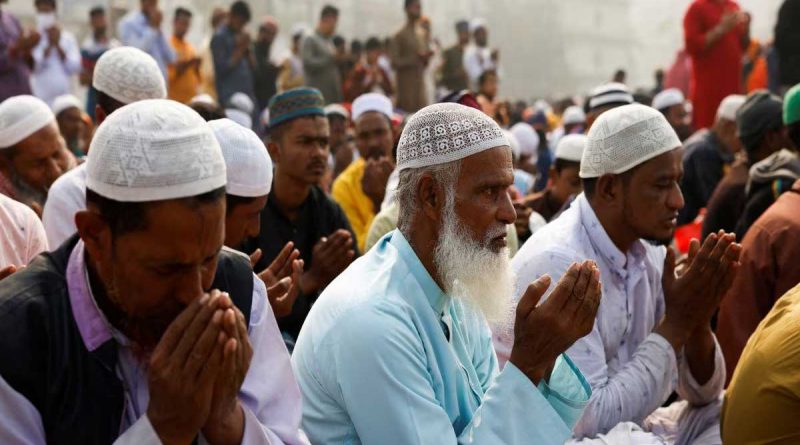The Invisible Majority: Why India’s Pasmanda Muslims Remain Excluded from Local Power
As Telangana heads toward local elections, a caste-blind political consensus continues to marginalize the Muslim majority within its own minority.
In India’s southern state of Telangana, a political drama is quietly unfolding — one that exposes the complex and often uncomfortable intersections of religion, caste, and electoral opportunism. As the state prepares for its local body elections expected in late summer 2025, a critical segment of the Muslim population — the Pasmanda community — is once again confronting political invisibility.
Comprising 81% of Telangana’s Muslim population, Pasmanda Muslims represent a mosaic of historically marginalized occupational groups — from butchers and barbers to weavers and tanners. Yet, despite their demographic dominance and backward caste status, they remain conspicuously absent from political leadership and policy-making. Their plight offers a telling glimpse into how electoral democracies can fail the very majorities they claim to represent.
A Demographic Power with Political Silence
India is often celebrated as the world’s largest democracy. But democracy, in form, doesn’t always guarantee inclusivity in substance. In Telangana, Muslims make up roughly 12.56% of the population, and within them, Pasmanda groups are the overwhelming majority. However, representation in political parties, legislative bodies, and even local governance structures remains disproportionately skewed in favor of elite Ashraf Muslims — a minority within the minority.
This disconnect is not merely symbolic; it has tangible socio-economic consequences. Pasmanda communities are consistently ranked among the poorest, least educated, and most job-insecure segments in Indian society. But when it comes to political alliances and candidate selections, their voice is rarely heard.
Congress and the Illusion of Social Justice
The ruling Congress Party, which reclaimed power in Telangana in 2023, has made significant overtures toward caste equity. It recently released long-demanded caste census data and expanded reservations for Backward Classes (BC) in local body elections to 42%. On paper, these are progressive steps.
But the devil lies in the details — or rather, in their absence. While Pasmanda Muslims are classified under BC, no sub-quota or reserved seat allocations have been announced. The risk? That dominant caste groups — both Hindu and Muslim — will continue to monopolize the benefits, leaving Pasmandas with little more than symbolic inclusion.
For a party that brands itself as the custodian of social justice, the refusal to institutionalize representation for the numerically largest Muslim group reeks of electoral calculus, not ideological conviction.
AIMIM: A Partner or a Gatekeeper?
Further complicating matters is Congress’s increasing alignment with the All India Majlis-e-Ittehadul Muslimeen (AIMIM), a Hyderabad-based Muslim party led by the influential Owaisi family. While AIMIM positions itself as the voice of Indian Muslims, critics argue that its leadership — drawn from Ashraf elites — has shown little appetite for addressing internal caste disparities within the Muslim community.
To many Pasmanda activists, the Congress-AIMIM partnership is not a bridge but a barrier. It effectively outsources Muslim political representation to a party that has historically sidelined backward caste Muslims. The result? A political paradox in which the Muslim majority within Telangana’s Muslims is structurally locked out of power, even in elections meant to empower the grassroots.
BJP’s Pasmanda Rhetoric: Inclusion in the North, Exclusion in the South
At the national level, India’s ruling Bharatiya Janata Party (BJP) has launched an aggressive campaign to court Pasmanda Muslims, particularly in northern states like Uttar Pradesh and Bihar. Prime Minister Narendra Modi has invoked their historical marginalization in multiple speeches, presenting the BJP as a party that transcends religious lines in its fight against caste inequality.
Yet in Telangana, the BJP sings a different tune. Its state unit has vehemently opposed the inclusion of Pasmanda Muslims in the BC list, citing religious objections. This double standard not only undermines the central leadership’s narrative but also exposes a deeper contradiction — one where caste equality is conditional upon geography and political expedience.
Pasmanda Voices: Demanding Justice, Not Charity
From within the community, frustration is mounting. Mohammed Shabbeer, working president of a Pasmanda advocacy group, puts it plainly: “Numbers mean nothing without representation. Congress hides behind broad quotas, and BJP hides behind religious lines. Neither wants to genuinely empower us.”
Shukuroddin, who leads an association representing backward Muslim groups like the Dudekulas and Noorbash, echoes this sentiment: “We are always good enough to vote, but never good enough to lead. This isn’t inclusion — it’s electoral exploitation.”
These voices don’t demand charity. They demand justice — a fair share of political space in accordance with their demographic reality.
The Global Lens: Why This Story Matters
For an international audience watching India’s democratic evolution, the Pasmanda issue is more than a local or sectarian squabble. It’s a case study in how caste hierarchies can fracture even ostensibly unified religious identities. It is also a reminder that marginalization operates in layers — and that the language of rights must reach beyond majoritarian binaries of Hindu and Muslim.
In a world grappling with the politics of inclusion — from African-Americans in the U.S. to migrant communities in Europe — the Pasmanda struggle adds a uniquely South Asian dimension to a global conversation.
Will the Cycle Finally Break?
As Telangana moves toward local elections, the answer to whether Pasmanda Muslims will finally gain real representation is far from clear. What is clear, however, is that continued silence — both institutional and electoral — will only deepen existing fissures.
Democracy thrives not merely on votes, but on voice. Unless Telangana’s political parties are willing to recognize the latter, the largest segment of its Muslim population will remain politically invisible — again.
Disclaimer: Views expressed by writers in this section are their own and do not reflect Milli Chronicle’s point-of-view.


